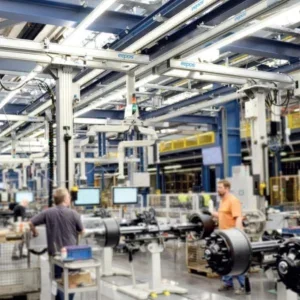According to the Economist magazine, there is a company in our industry that is “a model for the restructuring of European Industry”. That company is KCI Konecranes. The reasoning goes that there are far too many little companies in Europe (50 tractor makers, compared to America’s four, the Economist cites as an example) and good old Konecranes is tidying up the place by reducing the number of little players. It is a surprisingly illiberal view for that magazine, but it justifies its position by quoting research that found that the more consolidated an industry is, the higher its return on capital employed. So if you are about to be taken over, take heart: it is all for the good of the industry.
KCI Konecranes is in acquisitive mood because with its markets flattening out it believes this is the way to grow. But it is not alone. Morris Material Handling too has been buying crane builders. And in this issue we report on the recent shopping spree of Columbus McKinnon which now seems to have turned its attention to the evidently fragmented marketplace of Europe.
What does all this activity mean for customers? On the one hand, the bigger, better and more efficient the supplier, the better the service one can expect. Bigger suppliers can invest more in R&D and offer a wider range of integrated solutions. This is the line that those on the acquisition trail will give and it has a certain validity.
But there is another side to these developments. Historically, major manufacturers have supplied the lifting gear trade which serves the end-users. But some majors now seek to bypass or compete with those companies that were formerly their agents and go straight to the end-user. This is a significant threat to the the entire lifting gear trade.
Should the end-user care? Often the major company can provide a better service, though it needs sharp management to remain as responsive as the smaller independent. But a manufacturer that previously served the trade and now competes with it, offers only its own products. While it seeks to have a full range for every conceivable eventuality, it is unlikely to offer a rival product even when this is in the best interests of the end-user. Most of the time this may not matter, but there will be times when it does.






